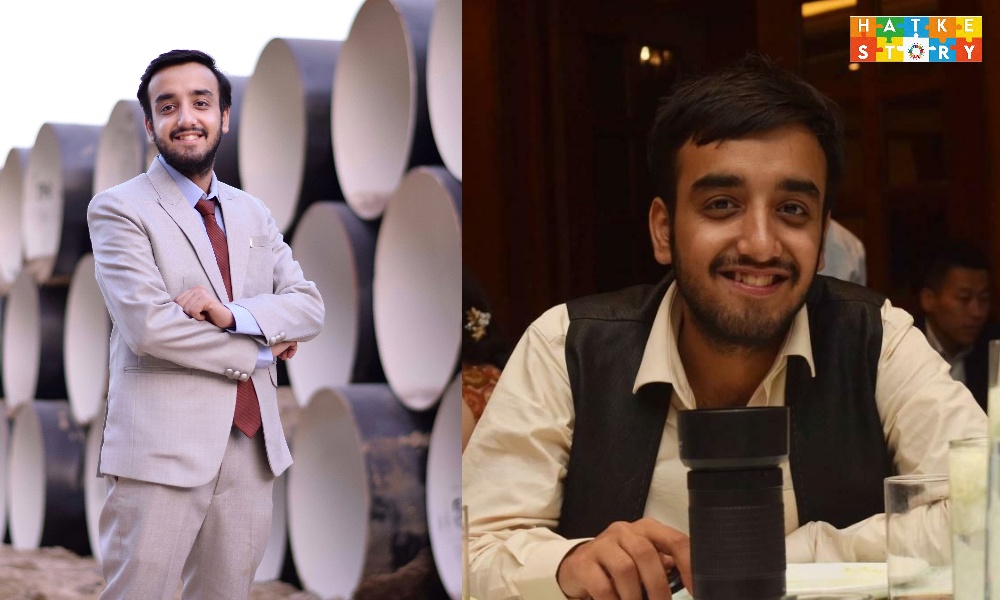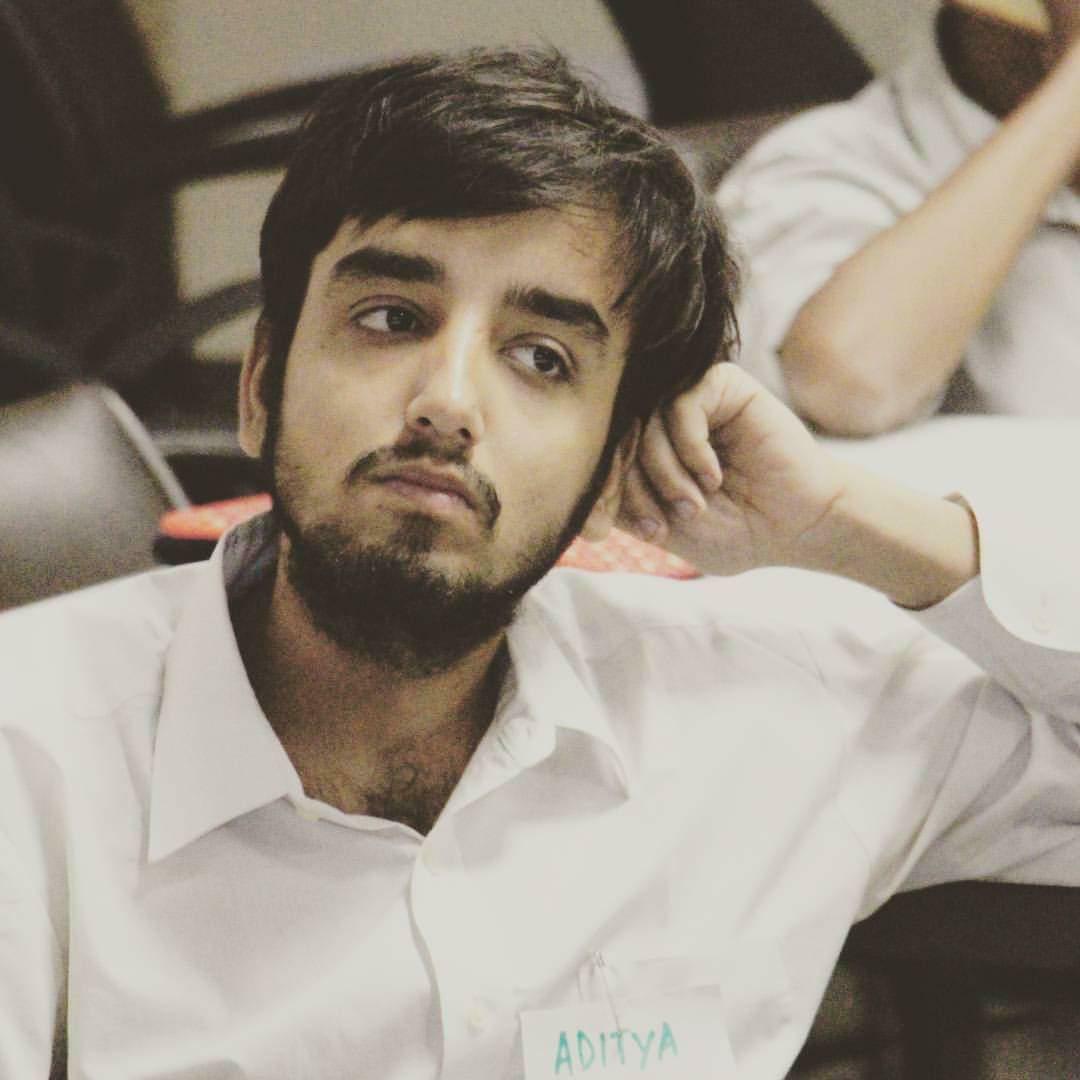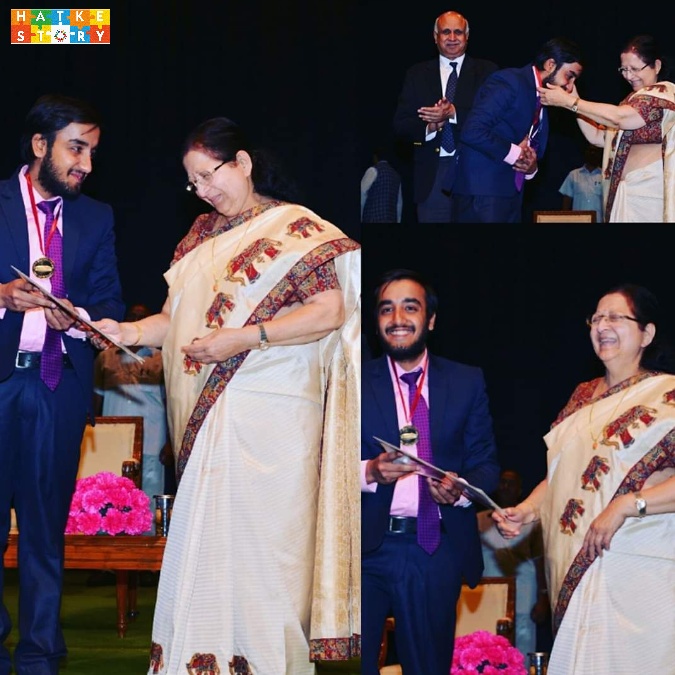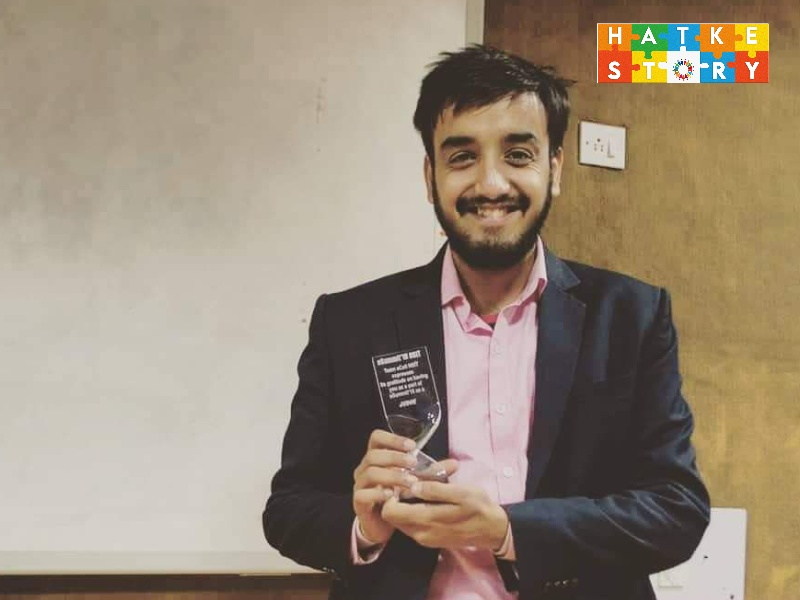Once, Katrina Mayer had said, ‘Age is only a number we count until we’re old enough to know it doesn’t count.’ Well, our today’s guest Aditya Arora has a deep connection with both age and numbers. For him, age is just a number, and numbers are his passion.
Since his childhood, Aditya Arora has been good at calculating numbers. When kids of his age were busy watching cartoons, he was busy doing random calculations. This interest grew more with time and made him what he is today- CEO of Faad Network, but for us, he is the ‘Boy Who Defined Numbers.’ So let’s explore Aditya’s life in this interview.
Aashna- Aditya Arora, tell us something about your background and life?
Aditya Arora – I am Aditya Arora and I’m a 23 years old young entrepreneur. I get engaged in start-ups, and I am working towards young innovation. So I support new start-ups by raising funds for them. Other than that, I conduct seminars and webinars for students to share knowledge and experiences.
I belong to a middle-class family, and we are based in Delhi. I was born and brought up here itself, and I completed my education in Delhi only. I did my schooling at APJ School, Pitampura in Delhi. I was a soft-spoken guy, instead of an introvert who couldn’t express himself, but with time, I evolved.
Since my childhood, I have been very active in sports, acting, dancing, and that’s where I got an expression of myself. My parents always focused on academics. My dad is a government officer, and my mom is a teacher. I got admission to my dream college, where I studied finance and investment analysis at Delhi University.
Aashna- How Faad Network started? You are working as an entrepreneur at such a young age. So what did it take to be here?
Aditya Arora – If I talk about it, I am very interested in numbers. Every time I used to sit and do random calculations. Plus, I learned Abacus, and that was very helpful to understand numbers. So I used this skill in start-ups. I showed this to some people, and they liked it and appreciated the start-up as well.
I was very glued to the name of the company I am working with. So it fascinated me. First, I joined Faad as an intern. So they started it in 2015, and I was the first intern there. Initially, I learned everything by reading case studies and old files.
Then I interviewed a lot of entrepreneurs to write their stories. I did many events for ‘Faad’ and hosted 60 interviews in about five destinations in India. With all these things, in particular, I developed my interest in entrepreneurship, and I became confident with the work I had chosen. I was offered part-time work when I was in college. So we started a small start-up there, people came in and started investing in it. We helped them, and we did what should be done.
Later, after a few years, they took my hard work, passion, and ambition into consideration and appointed me as the company’s CEO.
Aashna- How did the management decide to offer you the post of CEO? It was a significant risk to appoint a 19-year-old guy in this position. What did you do for the company?
Aditya Arora – I think this was the most significant opportunity, and I concentrated on my work rather than worrying about money and all. They also liked the potential I produced in front of them when I was an intern there. I was never behind money and personal gains. I think that was the thing they saw in me.

Aashna- How do you select a start-up for funding?
Aditya- Firstly, we select or choose the person who is running the business. We see if they are passionate about it or not? They are small enterprises and not a company. They are small start-ups. Then we move on to the technical side of it, like how it’s going to work. How productive is it?
How can it be integrated across platforms? How to scale those things? After that, we look up to how much money is required, or it can make? We talk about profits, customers, or users that are there in the picture.
Adding to it, we think about the potential of the start-up. Will it mark up to the highest arbitrary figure so that I can make out returns from it accordingly? We select based on their growth expectation. After that, we consider the terms of doing business with a new setup of a start-up.
Aashna- How do you convince investors to invest in it?
Aditya Arora – We have to screen the start-up ourselves before presenting it to the investors. We mostly get more than a hundred applications in a month, and we have to select the three best start-ups out of it. To choose the best three out of the lot, we calculate how other investors are investing in closing the amount the start-up is seeking. We look at the 5 T’s of investing. We also take risks sometimes regarding the pitching of the start-up.
Aashna- How much do you invest in a start-up?
Aditya Arora – My company typically invests 25 lacs to 3.5 crores, so it’s a broad range that depends on the start-up’s potential. So if I say Faad invest means it also includes a network.
Aashna- What is your earning formula?
Aditya Arora – Faad takes money from the investors, then we take out some percentage of the amount as commission rest we invest in that company for whom we raised funds. We charge both investors and company owners according to the fund that has been raised.
Aashna- My next question is about Education Yatra. What is it all about?
Aditya Arora is a social impact campaign where we divide students, not based on class but knowledge. It is a grade-wise division in an assessment platform. We take up the challenge and travel village to village across Delhi. So I used to teach many students, and I helped them in enrolling in different courses.
Aashna- What were the incidents related to Education Yatra that impacted your life?
Aditya Arora – Every child impacted my life somehow or the other. Mostly positive encouragement. Moreover, the mindset of parents matters the most here. There are so many stereotypes in villages where education is not given preference. I feel blessed when I break these taboos and see a smile on their faces.
I remember an incident. For two years, I stopped Education Yatra as Faad needed my attention. After two years, when I went back, many village women circled me and said, ‘You are the boy who used to teach our kids. Because of you, they passed the class. Please teach them back.’ Their words touched my heart, and that was a proud moment for me. Education Yatra is the natural, favorite, and best achievement of my life.

Aashna- You might have struggled a lot to get this position. Tell us more about your struggles.
Aditya Arora – My struggle began when I chose entrepreneurship over jobs because I knew my parents wouldn’t support my decision. I wasn’t applying for jobs or sitting in interviews for placements. I didn’t have money in my pocket, and I had to support Education Yatra and my personal needs. So I started performing at open mic events as a standup comedian for managing these expenses.
For two and a half years, my day would start at 7 in the morning. Then by 8, I used to take the metro to reach my college. My classes would last till 1 pm. Then I’d go to a village to teach these kids. Again, I would travel back to attend open mic events and prepare the script during these traveling hours only. At night, after 1 pm I used to write case studies and projects for next-day submissions.
Sometimes, I got only 3 to 4 hours of sleep. That was my life for two and a half years, no social media, no personal life. My parents and people didn’t know what I was doing with my life. But alas, it’s a gone thing now.
Aashna- What kind of work do you do with the Indian government?
Aditya Arora – Two things, one is entrepreneurship mindset curriculum. Means ambassador of Delhi government teaches students explicitly to set their mind as an entrepreneur. So I was one of the founding members.
Aashna- What sort of things happen in these programs?
Aditya Arora – I take sessions over there discussing personal stories and live examples. How I moved ahead in life and all those things? How students can tackle the difficulties, for example, I tell them my story like how I reached here despite choosing different paths and some other start-ups to understand more about it.
Aashna- Many start-ups are introduced here in India, but the success rate is shallow compared to foreign countries. Why?
Aditya Arora – See, practically, if we see the foreign countries have ample resources to establish their start-ups. India is a growing nation. It has come up a very long way in entrepreneurship. Still, it needs time to grow because entrepreneurship will be the next thing on the block now.
So we have a long way to go. Innovation is not here in India. That’s why start-ups are going way too down here. For example, we don’t think of new things or focus on improvement. Instead, we copy it from our neighboring countries.
Aashna- What is happening right now in the Indian market?
Aditya Arora – Market is down at this point because you see how the pandemic and the lockdown have hit the economy very hard. If we look from the investment point of view, we have some excellent investors now with the right amount of cash flow.
We recently shut down more than ten companies out of the 12 we looked for funding during the lockdown. So the companies are funding their allies rather than funding the new companies. So it’s a mixed bag kind of a thing. For example, EdTech or education Technology, gaming, essential items are attractive sectors, getting more funds than others.
Aashna- Is the government of India supporting these start-ups?
Aditya Arora – The government has taken a back seat in this area rather than playing an active role. Our government hardly supports start-ups. It is creating more problems with taxation and accountability.
They only implement rules, whereas they should act as well for the smooth running of start-ups. We need more participation from the government, which is not there. That’s what drags us behind.
Aashna- What are the acknowledgments you have received till now?
Aditya Arora – I have received many awards. These are my personal favorites- Indian Parliamentary Meritorious Award in 2015, Young Entrepreneur in 2017, Microsoft Top 15 Change-makers Under 20 for Education Yatra, REX Karam Veer Chakra, UN award, and along in 2019.

Aashna- What are the most significant lessons you have learned from your life experiences?
Aditya Arora – I have learned the three most important lessons from my life experiences.
1. Age is just a number. What you do with the number matters more. Your age doesn’t define you, but the quality of your work does.
2. It is your passion. If you don’t take charge of it, then no one will. People respect success but don’t take responsibility for the work. So you need to take authority of your work and march forward in life.
3. Time is money. We all have 24 hours in hand to change our life, so we need to use it wisely.
Aashna- What is your message for our readers?
Aditya Arora – I want to say that I’m one of you whatever you are reading about me. I’m one in the crowd because I followed my passion. You can do it too. Always follow your passion, follow your instincts. If you do it then you can also become one in the crowd.
Like us on FB, if you find our content interesting: https://www.facebook.com/hatkestoryofficial/
Do you have an interesting incident or experience to share with the world? Write to us, and together we can discuss how to weave your story and present it to the world. Would you mind sending us your story?












Comments are closed.